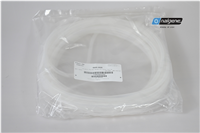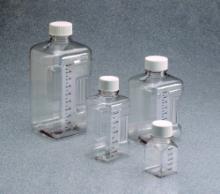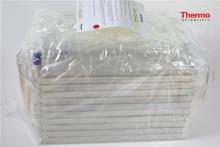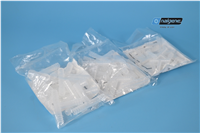产品详细信息
Description: The eBioKMC8 monoclonal antibody reacts with mouse CD9, a 24 kDa member of the transmembrane 4 superfamily. This family is characterized by the presence of four hydrophobic domains spanning the cell membrane and short N- and C-terminal cytoplasmic domains. CD9 is expressed by several cell types including monocytes, macrophages, platelets, early B cells, activated B and T cells, dendritic cells, eosinophils, basophils, endothelial cells, myoblasts and neuroblasts. On T cells, CD9 functions as a co-stimulatory molecule on naive T cells. Furthermore, CD9 is expressed in oocytes, and CD9-deficiency results in sterility caused by defective gamete fusion. In mouse macrophages, CD9 functionally associates with FcgammaRs to modify signals for phagocytosis and inflammatory responses. In mouse B cells, it was discovered that CD9 is a marker for marginal zone B cells, B1 cells, and plasma cells. In dendritic cells, recently it was demonstrated that CD9 facilitates the association of heterologous MHC II molecules. The level of CD9 expression is subject to donor variability. 靶标信息CD9 antigen is a glycoprotein expressed on the surface of developing B lymphocytes, platelets, monocytes, eosinophils, basophil, stimulated T lymphocytes and by neurons and glial cells in the peripheral nervous system. CD9 belongs to a family of membrane proteins termed tetraspanins which transverse the membrane four times. In pre B cells and platelets, CD9 antigen regulates cell activation and aggregation possibly through an association with the integrin CD41 / CD61 (GPIIb / GPIIIa). CD9 is involved in cell motility, osteoclastogenesis, neurite outgrowth, myotube formation, and sperm-egg fusion, plays roles in cell attachment and proliferation and is necessary for association of heterologous MHC II molecules on the dendritic cell plasma membrane which is important for effective T cell stimulation. CD9 functions in many cellular processes including differentiation, adhesion, and signal transduction, and expression plays a critical role in the suppression of cancer cell motility and metastasis. CD9 is also considered as metastasis suppressor in solid tumors. |
无参数





 微信公众号下单更便捷
微信公众号下单更便捷








